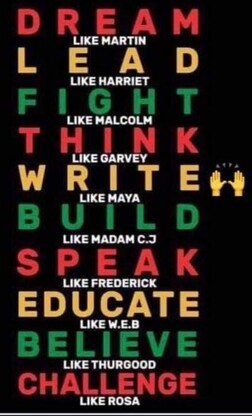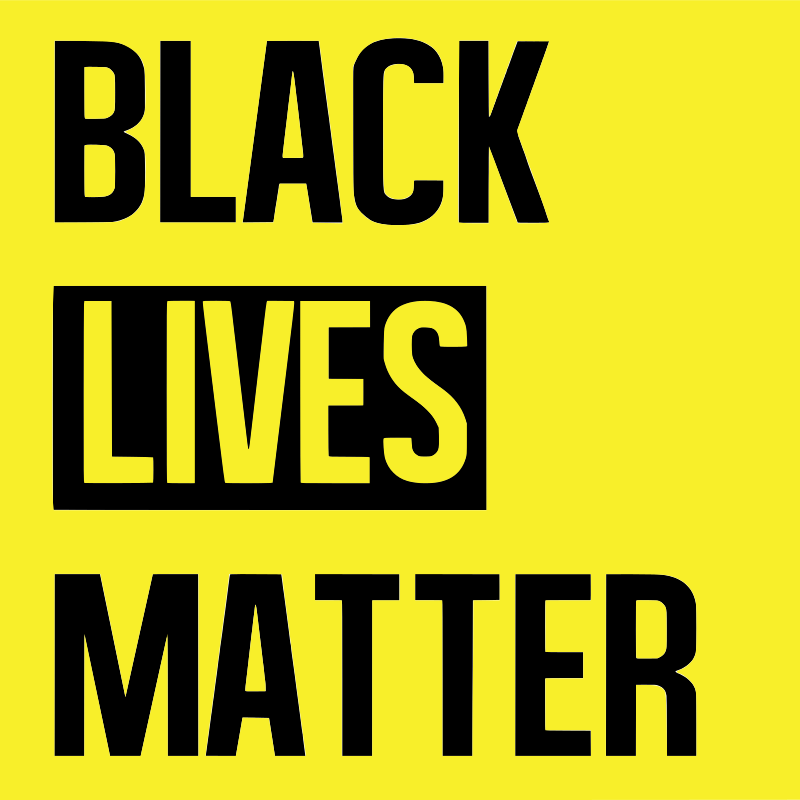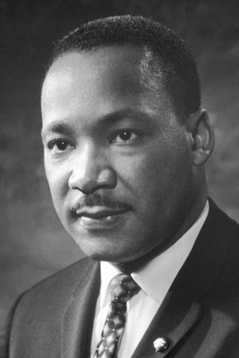Martin Luther King Junior was an American minister who became the spokesperson and leader of the Civil Rights Movement in 1955 until his assassination in 1968. He is a hero and inspiration for the recent Black Lives Matter campaign and was instrumental in combating racial inequality in the United States.
Born in Atlanta, Georgia, on 15th January 1929, he was originally named Michael, although his father, Reverend Michael King Snr, claimed this to be a mistake. Apparently, his mother, Alberta, gave him the name Michael, which a physician entered onto the birth certificate without consulting the father. Nonetheless, after a trip to Germany in 1934 where he learnt about the German professor Martin Luther, Michael King Snr began referring to himself as Martin Luther King and his son as Martin Luther King Jr. On 23rd July 1957, Junior’s name was officially changed on his birth certificate. King and his two younger siblings, who grew up listening to bible stories, lived in harmony with black and white children until they began school. It was then that King noticed the difference in treatment between black and white. King had no choice but to attend Younge Street Elementary School for black children and was told he was no longer allowed to play with his white friends. His father refused to accept segregation laws and led protests and marches in Atlanta. King Jr began to resent racial humiliation during his teenage years. He also began to question Christian claims. He had grown up memorising bible passages and hymns but his experiences as a black boy made him question the authenticity of Christian beliefs. Fortunately, his mentor at college, a Baptist minister, who also became his spiritual mentor, encouraged King to follow in his father’s footsteps. After graduating from college, King enrolled at Crozer Theological Seminary in Upland, Pennsylvania. In 1951, King began his doctoral studies in systematic theology at Boston University and the following year he was called as pastor of the Dexter Avenue Baptist Church in Montgomery, Alabama. Whilst studying in Boston, King met Coretta Scott, who he later married on 18th June 1953. Over the next decade, the Kings became the parents of four children: Yolanda King (1955–2007), Martin Luther King III (b. 1957), Dexter Scott King (b. 1961), and Bernice King (b. 1963). In 1955, a schoolgirl, Claudette Colvin, refused to give up her seat for a white man in protest of the enforced racial segregation laws. King, who was on the Birmingham African-American community, looked into the case, but it was eventually dismissed on account of Colvin being a minor. Later that year, a similar incident occurred when Rosa Parks was arrested for refusing to give up her seat. As a result, King led a boycott of the buses in Montgomery, which lasted 385 days until King’s house was bombed. Although King was arrested during the campaign, it resulted in the end of racial segregation on all Montgomery public buses. In 1957, King and some other black ministers founded the Southern Christian Leadership Conference (SCLC), which aimed to encourage black churches to conduct nonviolent protests in the name of civil rights. The conference was inspired by Reverend Billy Graham who, despite being white, had befriended King and shared his sentiments. During the SCLC’s 1957 Prayer Pilgrimage for Freedom demonstration in Washington, King made his first public speech to the nation. The following year, King published his book Stride Toward Freedom, however, during a book signing in Harlem, he was stabbed in the chest with a letter opener. He narrowly escaped death with the help of surgeons and was hospitalised for three weeks. The attack, however, was deemed not to be a racial offence as the perpetrator was a mentally ill black woman called Izola Curry who believe King was conspiring against her with a group of Communists. After recovering from his near-death experience, King returned to the fore of the Civil Rights movement and led several non-violent protests and marches. These aimed to provide black citizens with the right to vote as well as provide labour and civil rights, most of which were granted in the Civil Rights Act of 1964 and the 1965 Voting Rights Act. King, along with the SCLC, involved themselves with uprisings around the country. In Albany, Georgia, King was arrested at a peaceful demonstration in 1961 and again in 1962. The following year in Birmingham, Alabama, King was arrested once again for campaigning against racial segregation and economic injustice. This was his 13th arrest and, by the end of his life, he had been arrested 29 times. Nonetheless, he remained undeterred and joined or organised protests in New York and Florida in 1964. Martin Luther King Jr’s most famous “I have a dream” speech took place during the March on Washington in 1963. The march made demands for the removal of racial segregation in schools, a law to prevent racial discrimination at work, a minimum wage for black workers and protection from police brutality, amongst other things. King’s speech has since been listed as one of the finest speeches in the history of America. “I have a dream that one day, down in Alabama, with its vicious racists, with its governor having his lips dripping with the words of interposition and nullification; one day right there in Alabama, little black boys and black girls will be able to join hands with little white boys and white girls as sisters and brothers.” King continued to organise marches, speeches and protests and, in 1967, involved the SCLC with the protests against the war in Vietnam. Not only was King concerned about black rights, but he also spoke strongly against the USA’s involvement in the war in general. Following this, in 1968, King organised the “Poor People’s Campaign” to address the issues of economic justice across America. By then, some circumstances had improved for black people and King was emphasising that black and white were equal and everyone deserved the same rights. On 29th March 1968, Martin Luther King Jr went to Memphis, Tennessee, to support the strike of black sanitary public works employees, where he delivered his "I've Been to the Mountaintop" speech. “I just want to do God's will. And He's allowed me to go up to the mountain. And I've looked over. And I've seen the promised land. I may not get there with you. But I want you to know tonight, that we, as a people, will get to the promised land. So I'm happy, tonight. I'm not worried about anything. I'm not fearing any man. Mine eyes have seen the glory of the coming of the Lord.” The following evening, whilst standing on the balcony at the Lorraine Motel where he was staying, Martin Luther King Jr was fatally shot in the face by James Earl Ray. Despite being rushed to hospital, King passed away an hour later. His death resulted in mass riots in cities across America until, on 7th April, President Lyndon B. Johnson declared a national day of mourning for the Civil Rights leader. Just days after his death, the Civil Rights Act of 1968 was passed prohibiting discrimination in housing and housing-related transactions on the basis of race, religion, or national origin. Despite dying at the age of 39, Martin Luther King Jr’s actions and legacy changed the lives of black people forever. The struggle was by no means over, however, black and white were beginning to live in harmony. His dream that his “four little children will one day live in a nation where they will not be judged by the colour of their skin but by the content of their character,” was finally coming true.
0 Comments
Your comment will be posted after it is approved.
Leave a Reply. |
©Copyright
We are happy for you to use any material found here, however, please acknowledge the source: www.gantshillurc.co.uk AuthorRev'd Martin Wheadon Archives
June 2024
Categories
All
|



 RSS Feed
RSS Feed